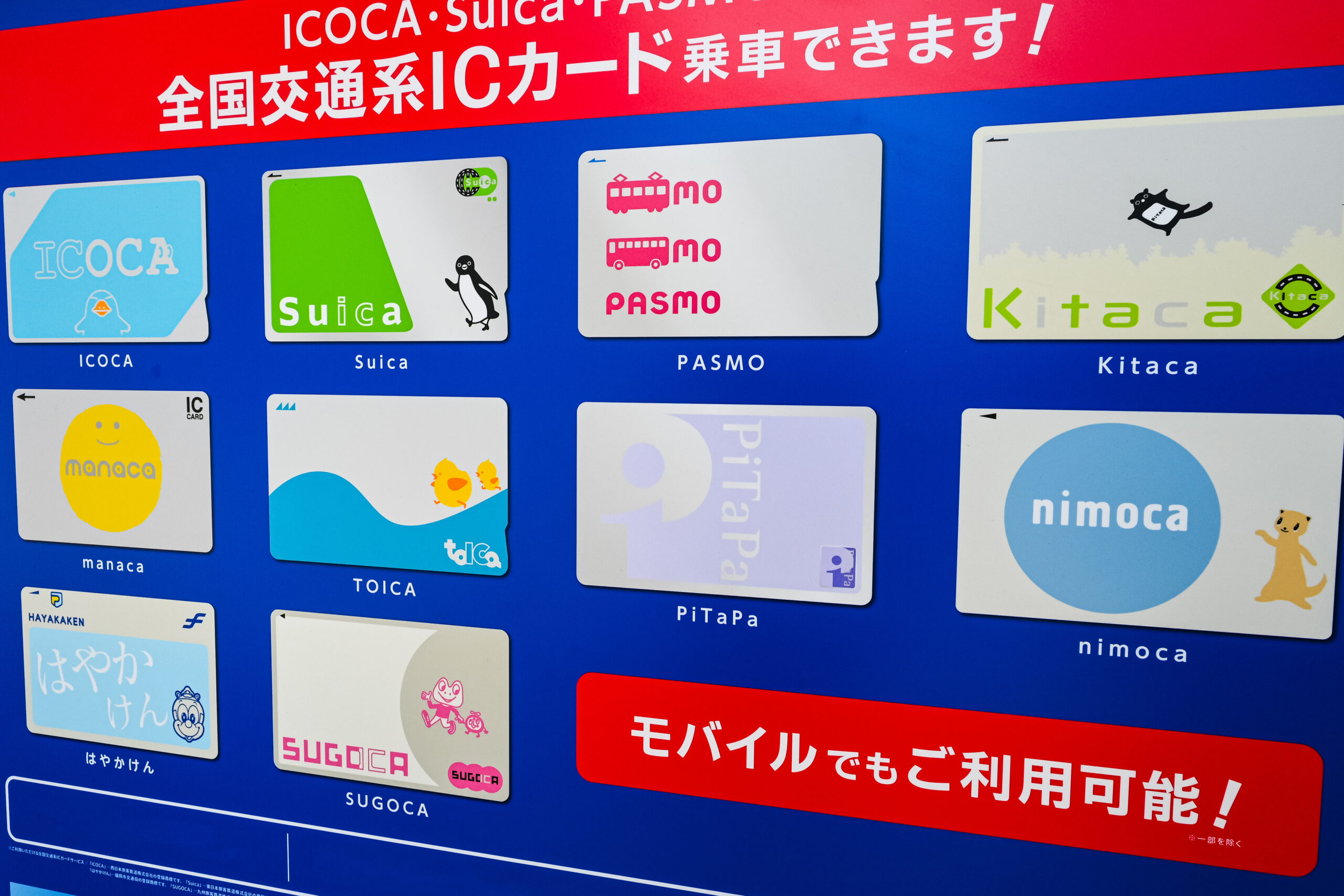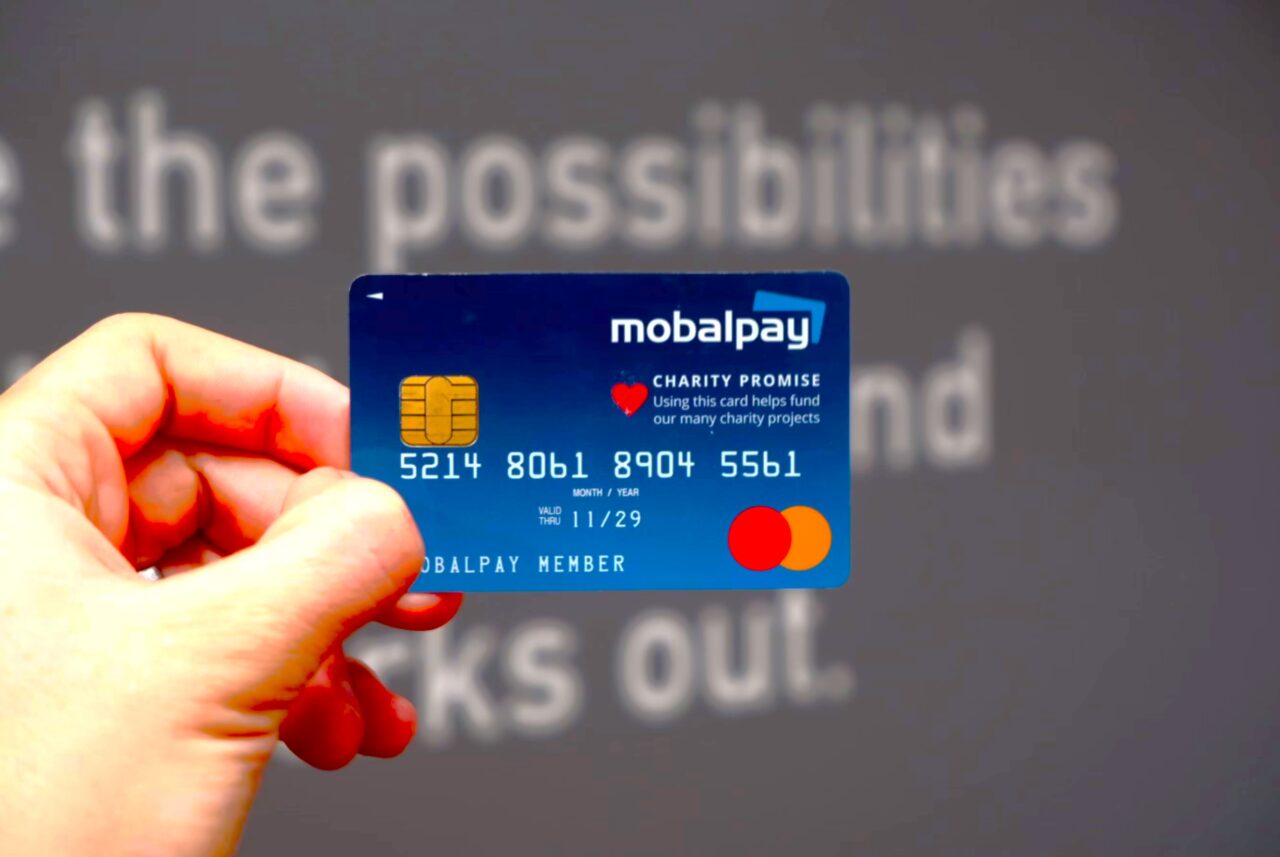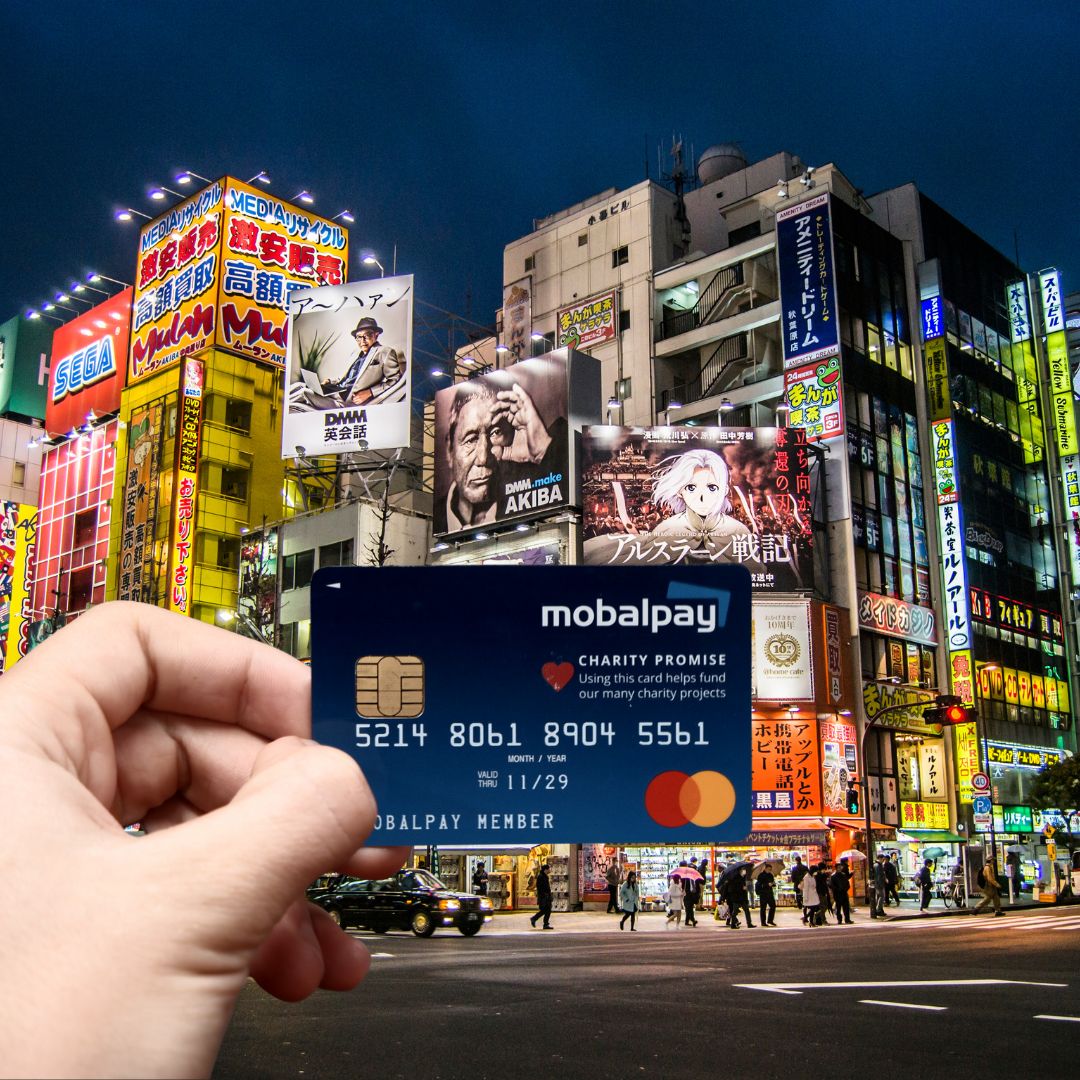Japan SIM and Prepaid Payment Cards: How to Choose the Best for Expats

Are you planning a trip to Japan or looking for a more reliable mobile plan as a long-term resident? Navigating Japan’s unique mobile networks and payment systems can be overwhelming. Fear not, as this comprehensive guide is here to simplify your search for the perfect SIM card and prepaid payment card.
We will delve into important factors to consider when choosing a plan, such as the accessibility of data and the length of contract that is right for you. Whether you are a traveler looking for a flexible short-term option or a student or expatriate in need of a long-term solution, we have you covered. Discover how to choose a plan that aligns with your lifestyle and budget, ensuring seamless connectivity throughout your stay in Japan.
Additionally, we’ll explore the benefits of prepaid payment & transit cards, and how they can simplify your financial transactions. From convenient top-ups to secure online payments, prepaid payment cards offer a hassle-free way to manage your money while in Japan.
Featured Partners: Mobal SIM cards and MobalPay – your essential tools for seamless travel in Japan.
These Related Articles Are Also Worth Checking Out:

Introduction and Target Audience
Understanding SIM and Prepaid Payment Cards for Every Visitor to Japan
Japan is a captivating destination, attracting a wide range of visitors, from short-term tourists to long-term expatriates. Each group has unique needs when it comes to mobile connectivity and financial transactions. For short-term visitors, the focus is often on convenience and flexibility, allowing easy communication and access to necessary services during their stay. On the other hand, long-term residents, such as business expatriates, working holiday participants, and international students, require more comprehensive solutions that offer reliable service and cost-effectiveness.
Navigating Japan’s vast array of SIM card and prepaid payment card options can be daunting, especially when considering factors like language barriers and cultural differences. The complexities of Japanese mobile networks and payment systems may seem overwhelming, but understanding the available choices will make the process much smoother. This guide is designed to help both temporary and permanent residents find the most suitable options for their lifestyle needs.
By familiarizing yourself with these systems, you can ensure seamless connectivity and efficient financial management during your time in Japan. Whether you’re a tourist planning a week-long holiday or an expat settling in for the long haul, this resource provides the critical information needed to make informed decisions. From selecting a flexible SIM card to understanding the benefits of prepaid payment cards, this guide offers insights tailored to every type of visitor, ensuring a hassle-free experience in the Land of the Rising Sun.
Choosing the Right SIM Card for Foreigners in Japan
SIM Card Options for Short-Term Visitors
Best SIM Card for Tourists in Japan
For tourists visiting Japan, finding the right SIM card or eSIM can make a significant difference in ensuring smooth communication and internet access. The ideal SIM/eSIM card for tourists should offer easy setup, seamless connectivity, and affordable pricing. Some providers offer SIM cards specifically designed for tourists, featuring perks such as high volume data plans, competitive pricing, and no lengthy contracts. These SIM cards cater directly to short-term needs, allowing tourists to stay connected without the burden of complex activation processes or high costs.
Flexible Contracts and No Japanese Language Required
Another important consideration for short-term residents when choosing a SIM card is contract flexibility; many providers, including Mobal, offer plans that do not tie users to long-term contracts, which is especially attractive for those who do not plan to stay long term. In addition, notable services include support in multiple languages, including English, to help navigate the purchase and setup process. Since there is no need to understand Japanese, this eliminates complications for travelers and makes for a more user-friendly experience.
Cultural Tips: Navigating Japan’s Cash Society
Japan utilizes a diverse range of payment methods, including cash, credit cards, and contactless options like Suica and Pasmo. Cash remains prevalent, especially in smaller establishments, but cashless transactions, particularly using contactless cards and mobile payments, are increasingly common in urban areas. Suica and Pasmo are pre-paid cards widely accepted on public transport and at many shops and restaurants.
For example, when buying a SIM card at a convenience store or electronics retailer, you can usually pay by card. However, it’s a good idea to have some yen on hand for small purchases or in case of any unexpected situations. When purchasing a SIM card, especially at the airport, it’s recommended to confirm the accepted payment methods with the provider beforehand. Having your passport ready will streamline the process.
SIM Card Options for Long-Term Residents in Japan
Choosing the Right SIM Card for Long-Term Stays in Japan
For expats, students, and long-term visitors to Japan, selecting an appropriate SIM card is essential for staying connected. When considering options, it’s crucial to focus on data allowances, network coverage, and services tailored to foreign residents. Japan’s mobile infrastructure is robust, with major providers like NTT DoCoMo and SoftBank offering extensive coverage nationwide. Companies such as Mobal specifically cater to the needs of foreign residents, providing plans with sufficient data for work, study, and communication with family abroad. When researching options, consider both data limits and network reliability to ensure seamless connectivity throughout your stay in Japan.
Mobal: A Provider Focused on Foreign Residents
Mobal stands out as a provider tailored for foreign residents in Japan. They offer long-term SIM cards and eSIMs suitable for stays of 90 days or more. Key features of Mobal’s service include:
- Flexible contract terms with no termination fees
- English language support
- Plans designed for foreigners’ needs
Mobal’s focus on catering to non-Japanese speakers can make managing mobile connectivity less stressful for those unfamiliar with the local language and systems. While Mobal offers services specifically for foreign residents, it’s worth noting that other major providers like NTT DoCoMo and SoftBank also operate in Japan. However, detailed information about their services for long-term foreign residents may not be easily accessible in English on their official websites.

When considering your options, it’s advisable to research thoroughly and compare plans from multiple providers, including Mobal, NTT DoCoMo, SoftBank, and au. While Mobal focuses on the foreign resident market, these major carriers also offer plans that may be suitable for long-term stays. English support and information availability may vary, so checking multiple sources is recommended.
Features of Mobal’s services
Mobal offers a comprehensive range of SIM card and Pocket WiFi services tailored for both short-term visitors and long-term residents in Japan. Here are the key points about their offerings:
- Short-term Visitors
- Data-only SIMs available for 8, 16, or 31 days
- SIMs for Calls, Texts & Data available for 30, 60, or 90 days
- Data allowances vary by plan (range from 25GB to 50GB for Data-only SIMs)
- Can be shipped prior to travel or picked up in Japan (limited countries available for shipping)
- Data-only options for 8, 16, or 31 days
- Voice+Data eSIMs available for 30, 60, or 90 days
- Data allowances range from 3GB to 100GB for Data-only eSIMs
- Instant delivery via email after purchase for Data-only eSIMs
- Long-term Residents
- Voice + Data SIM with a real Japanese phone number
- Monthly plans ranging from 1GB to 30GB
- Initial SIM card cost: ¥2,970
- No minimum contract period or cancellation fees
- Voice + Data eSIM with a real Japanese phone number
- Monthly plans ranging from 1GB (¥1,650/month) to 30GB (¥4,378/month)
- Initial eSIM cost: ¥2,970
- No minimum contract period or cancellation fees
- Your eSIM access code will be shipped or picked up in Japan
- Both options offer:
- English language support
- Coverage on major Japanese networks (Softbank for physical SIMs, Docomo for eSIMs)
- Flexible plans suitable for various needs
- No residence card required for purchase
Mobal offers more than just connectivity solutions for visitors to Japan. The company also provides Pocket WiFi options, catering to various needs of travelers and long-term residents. Their pocket WiFi service offers generous data allowances of up to 300GB per month, with the ability to connect up to 10 devices simultaneously.
What sets Mobal apart is their commitment to social responsibility. The company donates a significant portion of their profits to charitable causes, particularly supporting education initiatives in Africa. This means that by choosing Mobal for your connectivity needs in Japan, you’re not only getting reliable service but also contributing to meaningful social impact.
Disclosure: This article contains affiliate links. Purchases through these links support content creation and may generate a commission.
These Related Articles Are Also Worth Checking Out:

Exploring Prepaid Payment & Transit Card Options in Japan
Japan offers various prepaid payment card options for both short-term visitors and long-term residents. Understanding these options can help you manage your finances more effectively during your stay.
Prepaid Payment Cards for Short-Term Visitors
If you’re visiting Japan for a short period, you might not have access to traditional banking services. Fortunately, there are convenient prepaid options available:
Prepaid Payment Card Japan No Residence Card Required
Visitors looking for efficient and straightforward payment methods will find prepaid payment cards an attractive option in Japan, particularly as they often do not require a residence card for registration. This makes them perfect for tourists and short-term visitors who need convenient access to electronic payments without lengthy setup processes. Prepaid payment cards can be easily acquired at airports, convenience stores, and select retail outlets, enabling immediate usage for purchases and travel.
Top Providers and How They Differ
In Japan’s prepaid payment card market, several providers cater to the needs of temporary visitors. Notable options include cards like Visa’s prepaid payment card and Mastercard’s prepaid payment card services, both widely accepted across various shops and restaurants. Each provider offers different fee structures, recharge methods, and point reward systems, making it essential for users to compare these features based on their spending habits and preferences. Understanding the nuances between providers can help short-term visitors choose the most advantageous card for their stay.
Transportation IC Cards: Suica and Pasmo
These cards are primarily designed for public transportation but offer additional benefits:
- Usable on public transport in Tokyo and other major Japanese cities
- Can be topped up easily at train stations
- Accepted for small purchases at convenience stores and vending machines
While not traditional prepaid payment cards, Suica and Pasmo provide a practical solution for short-term visitors to handle small transactions and transportation costs.

Prepaid Payment Cards for Long-Term Residents
Japan Prepaid Payment Card for Expats
Long-term foreign residents in Japan can utilize various prepaid payment card options for convenient financial management. These can include debit-like cards for everyday spending, transportation cards (Suica/Pasmo) for small purchases and travel, and specialized prepaid payment cards like MobalPay designed for foreign residents.
These cards offer several advantages for expatriates managing their finances in a new country:
- Controlled Spending: Users can load a specific amount onto the card, helping to manage budgets effectively.
- Wide Acceptance: Prepaid payment cards can be used for various transactions, including in-store and online purchases.
- Accessibility: Many prepaid payment cards are easily obtainable from online platforms and convenience stores, often with minimal documentation required.
- No Credit History Needed: Prepaid payment cards in Japan, especially those for short-term visitors, typically do not require a credit check or a Japanese bank account.
- Mobile Integration: Many prepaid payment cards in Japan are seamlessly integrated with smartphones, enabling touch-and-go payments, which is particularly useful in urban areas.
These features make prepaid payment cards an attractive option for expats looking to manage their finances efficiently while integrating into the Japanese economy. However, it is important to note that Japan-specific prepaid payment cards are not directly connected to an overseas bank account. Instead, they offer a standalone solution that can be topped up through various means, providing a practical financial management tool for long-term residents in Japan.
MobalPay: A Prepaid Solution for Expats

MobalPay emerges as a valuable solution for long-term residents and expats looking to streamline their financial activities in Japan. Designed specifically for foreign residents, this prepaid Mastercard offers features that simplify monetary transactions without the complexities often associated with traditional Japanese banking.
One of MobalPay’s key advantages is its accessibility. Unlike traditional Japanese banks, MobalPay has no minimum residency requirements and doesn’t require a credit history check. Anyone with a valid Japanese Residence Card is guaranteed acceptance, subject to ID and fraud checks. This makes it particularly beneficial for newcomers to Japan who may struggle with conventional banking options.
MobalPay supports both in-store and online purchases, providing users with a versatile payment method. The card can be easily topped up using cash at convenience stores throughout Japan, offering flexibility in managing funds. Users can also track their spending through an online account, helping them stay on top of their finances as they settle into life in Japan.
Even more encouragingly, the service provides English-language support, minimizing the stress associated with financial management in a non-native language.
An unique aspect of MobalPay is its charitable focus. The majority of profits from the service go to charity, supporting various initiatives in Malawi aimed at poverty alleviation and community development.

As Japan continues to evolve towards increased electronic payment systems, MobalPay presents both long-term residents and expats with a straightforward way to engage with the local economy efficiently. It offers greater financial flexibility and autonomy, making it an appealing option for those navigating the complexities of financial management in Japan.
Disclosure: This article contains affiliate links. Using these links won’t cost you any extra, but it helps support our content creation.
In essence, the wide variety of prepaid payment card options in Japan meets the needs of a wide range of residents. Short-term visitors might prioritize transportation IC cards for ease of navigation, whereas residents benefitting from longer stays leverage comprehensive services like MobalPay. As you contemplate choosing a prepaid payment card, evaluating factors like your stay duration, spending behaviors, and personalized financial requisites is essential for making an informed decision. This ensures you select the card best aligned with your particular situation and seamlessly integrate into Japan’s financial landscape.
Tips for Navigating Mobile and Payment Systems in Japan
Short-Term Stay Strategies
Efficient Mobile and Payment Solutions for Tourists
Tourists in Japan have unique needs when it comes to mobile connectivity and payments. Efficient solutions are crucial, as they provide the ability to stay connected with minimal hassle. One of the most convenient ways to ensure a seamless experience is by obtaining a short-term SIM card or eSIM specifically designed for tourists. These SIM cards, available at airports and major electronics stores, offer the benefits of high volume data packages and straightforward pricing structures. Furthermore, travelers can consider renting pocket Wi-Fi devices, which provide reliable internet access wherever they go, supporting multiple devices simultaneously.
For convenient payments in Japan, tourists have several options. Transportation IC cards like Suica and Pasmo are invaluable for both public transport and small purchases at shops and vending machines. These cards are readily available, come pre-charged, and can be easily topped up at train stations. For broader shopping and dining, tourists can explore Japan-specific prepaid payment cards available at convenience stores, offering a convenient way to manage expenses without carrying large amounts of cash. Additionally, mobile payment apps like PayPay provide a cashless option directly from smartphones, further enhancing payment flexibility.
Wi-Fi Accessibility and Public Options
While Wi-Fi availability in Japan is improving, free public Wi-Fi can be inconsistent. For reliable internet access, tourists should consider renting a pocket Wi-Fi device or purchasing a data-enabled SIM card.
Many cities, such as Tokyo and Kyoto, offer free public Wi-Fi networks at popular tourist spots, train stations, and in certain shopping areas. However, the connection can vary, so having a reliable alternative like a rented pocket Wi-Fi can be beneficial. Tourists should also look out for Wi-Fi spots in cafes and fast-food outlets, which may offer secure, free internet access if a purchase is made. It’s advisable for travelers to download offline maps or translation apps before heading out to ensure they aren’t reliant solely on public Wi-Fi availability.
Long-Term Stay Strategies
Integrating into Japan’s Mobile and Financial Ecosystem
For expats and long-term residents, integrating smoothly into Japan’s digital and financial systems requires a bit more planning. Obtaining a suitable long-term SIM card with a comprehensive data plan from providers such as NTT DoCoMo, SoftBank, or au can ensure consistent connectivity. These providers offer a range of plans that cater to the specific needs of long-term residents, including data-heavy options for those who need to stay connected for work or educational purposes.
Financially, opening a local bank account may be necessary for those who will be earning an income in Japan. Although the process can involve significant paperwork and potential language barriers, understanding local requirements and seeking assistance when necessary can substantially smooth the process. Establishing a local bank account also facilitates easier money management through domestic transfers and bill payments.
Comparing Local Payment Methods: Suica, PayPay, and More
Japan offers a variety of local payment methods that have been designed to cater to the needs of both residents and visitors. One of the most widely used options is the Suica card, initially introduced for transportation but now accepted at convenience stores and retail outlets. Another popular choice is the PayPay app, which allows for easy, contactless payments using QR codes, and it is rapidly gaining acceptance among merchants across the country.
The increasing popularity of digital payments, particularly through widely-used apps or cards, offers significant benefits for both tourists and long-term residents in Japan. These options provide a convenient and efficient way to manage finances in a society that embraces a mix of payment methods.
Navigating Japan’s mobile and payment systems as a visitor or resident can be streamlined with the right strategies and tools. By understanding the options available and aligning them with your specific needs, you can enjoy the best of Japan without unnecessary complications in connectivity or financial transactions.
Benefits of Prepaid Payment Cards for Financial Transactions
Advantages of Prepaid Payment Cards for Visitors
- Avoiding Cash with Japan’s Prepaid Systems
Japan has traditionally been a cash-centric society, but the rise of digital payment options, including prepaid payment cards, is providing visitors with a convenient alternative to physical currency. These cards can be used like cash for purchases at convenience stores, restaurants, and for transportation.
- Security and Ease of Use
Prepaid payment cards also offer enhanced security features, making them a smart choice for visitors concerned about the safety of their funds while traveling. Since prepaid payment cards do not require a link to a bank account, the risk of an account being compromised is significantly reduced.
Additionally, some cards like MobalPay come with chip and PIN technology, providing an extra layer of protection against unauthorized use. The ease of use is another attractive feature, as most prepaid payment cards can be easily managed online through user-friendly interfaces that allow travelers to check balances, view transactions, and reload funds quickly and efficiently.
Advantages for Expats and Long-Term Travelers
- Convenience: Easy Top-ups and Online Payments
For expats and long-term travelers, prepaid payment cards present a practical solution for managing finances without the constraints and commitments associated with traditional bank accounts. One of the significant benefits these cards offer is the convenience of easy top-ups, which can be done at various ATMs and convenience stores. This feature ensures that expats can maintain a flexible approach to their finances, adjusting allocated amounts as needed.
Additionally, prepaid payment cards can be used for online payments, allowing long-term residents to manage both in-store and digital transactions smoothly. This adaptability is particularly useful for those who prefer to keep expenditures separate from their primary bank accounts or who may have limited access to Japanese banking services
- Using MobalPay to Simplify Finances in Japan
MobalPay is a prepaid Mastercard service designed specifically for foreign residents in Japan. This service aims to simplify financial transactions for foreign residents in Japan, addressing common challenges they face with traditional banking systems.
Here are its key features:
- Easy accessibility: Anyone with a valid Japanese Residence Card is eligible, with guaranteed acceptance subject to ID and fraud checks.
- No minimum residency requirement: Unlike traditional Japanese banks, MobalPay doesn’t require a minimum residency period or credit history.
- Versatile usage: The card can be used for both in-store and online purchases, providing a convenient alternative to traditional bank cards.
- Simple top-up options: Users can add funds to their MobalPay balance using various methods, including cash at convenience stores across Japan.
- Online account management: MobalPay offers an easy-to-use online platform for tracking spending and managing finances.
- English support: The service is designed for expats, offering English language support and information.
- Charitable contribution: A majority of MobalPay’s profits are donated to charity, supporting various initiatives in Malawi.
- Backed by experience: MobalPay is brought to you by Mobal, a leading telecoms provider for English-speaking expats in Japan with years of experience in solving customer problems.
Maximize Your Spending: Smart Point Hacks for MobalPay Users
Since MobalPay does not have its own point system, users can leverage existing point programs through strategic payment methods:
- Amazon and d-Point Integration
MobalPay users can strategically earn NTT Docomo’s d-Points by linking their Amazon and d-Point accounts. By setting MobalPay as the payment method in the dBarai app and linking the app to your Amazon Japan account, customers can use any d-Points accumulated through daily shopping for discounted shopping on Amazon.
- PayPay Point Opportunities
Another effective strategy involves registering MobalPay within the PayPay app. You’ll need a Japanese phone number, which you can get with a Mobal SIM if needed. Users can earn points at various convenience stores and potentially convert PayPay points to d-Points, creating a flexible point-earning ecosystem. This method provides additional value beyond traditional payment methods.
- Supplementary Point Strategies
Beyond these primary methods, MobalPay users can maximize point earnings by strategically using their card at d-Point partner stores like convenience stores and restaurants. Additionally, charging Mobile Suica using MobalPay in conjunction with using the JRE app for points allows you to use those points as credit for Mobile Suica. For frequent online shoppers, an Amazon Prime membership offers extra monthly point opportunities, creating multiple avenues to enhance your rewards ecosystem.
Conclusion and Additional Resources
In navigating Japan’s complex landscape of SIM cards or eSIMs and prepaid financial services, understanding your specific needs as a visitor or resident is crucial. Whether you’re a short-term tourist or planning a long-term stay as an expat or student, there are tailored solutions available to enhance your connectivity and financial transactions effortlessly. Mobal and other service providers offer tailored SIM cards with features like flexible contracts and English support, while prepaid payment cards such as Suica and MobalPay deliver convenience and security in managing everyday expenses without the reliance on cash.
Given Japan’s evolving payment ecosystem, taking advantage of these modern options can greatly ease the daily lives of foreigners in the country. As these systems continue to integrate deeper into everyday activities, their user-friendly nature and beneficial features will contribute significantly to a smoother and more enjoyable experience in Japan.
Remember, knowledge is key. By staying informed, comparing available options, and choosing services that best fit your lifestyle and needs, you can seamlessly integrate into Japan’s digital and financial systems.
Below are additional resources that provide further insights into these services, helping you make informed decisions:
- Japan Tourism Official Website – For travel information and tips.
- Mobal Japan SIM and prepaid payment card Services MobalPay – See the latest plans and features.
- JR East Suica Guide – Detailed guide on using Suica for transportation and payments.
- Japan’s Financial Services Agency – For regulatory information and guidance on financial services in Japan.
These Related Articles Are Also Worth Checking Out:

FAQ about Japan SIM and Prepaid Payment Cards
How do I choose the best SIM/eSIM card for my stay in Japan?
When selecting a SIM card for Japan, consider the duration of your stay and your specific connectivity needs. If you’re visiting as a tourist, look for SIM cards offering short-term, high volume data packages that suit your travel dates. For long-term stays, investigate providers like Mobal that offer flexible contracts and support in multiple languages. It’s also beneficial to check network coverage areas and data allowances to ensure they align with your usage patterns.
What should I know about canceling SIM cards and prepaid payment card services in Japan?
For SIM cards, contact your provider directly. Be aware of potential cancellation fees and any required notice period. For prepaid payment cards, check the terms and conditions as unused balances may have refund limitations or expiration dates.
How do I ensure seamless Wi-Fi connectivity?
To maintain reliable Wi-Fi connectivity during your stay in Japan, consider renting a pocket Wi-Fi device or purchasing a SIM card with data options to cover essential access needs. These devices offer an easy solution for those needing constant internet access and can connect multiple devices at no extra charge. Additionally, many accommodations, cafes, and public spaces offer free Wi-Fi, although speeds might vary, so having a backup device can be a prudent strategy.
Can I use prepaid payment cards without a residence card?
Yes, prepaid payment cards like Suica are available to tourists and short-term visitors without a residence card. The Welcome Suica, specifically designed for travelers, can be purchased at airports and train stations, allowing easy cashless transactions across Japan.These cards can be used for public transportation, shopping, and other purchases, with simple top-up options at convenience stores and stations. No bank account or long-term residency is required, making them ideal for visitors.
What are the differences between Japan’s payment methods like Suica and PayPay?
Both Suica and PayPay provide seamless payment experiences, though they operate differently. Suica is primarily a transportation card that has expanded its acceptance in retail environments, while PayPay is a mobile app facilitating QR code payments at a wide range of stores. Suica offers quick tap-to-pay convenience, whereas PayPay requires scanning using a smartphone app. Consider your personal preferences, the accessibility of each service, and your typical purchase patterns to choose the most suitable payment option for your stay in Japan.



